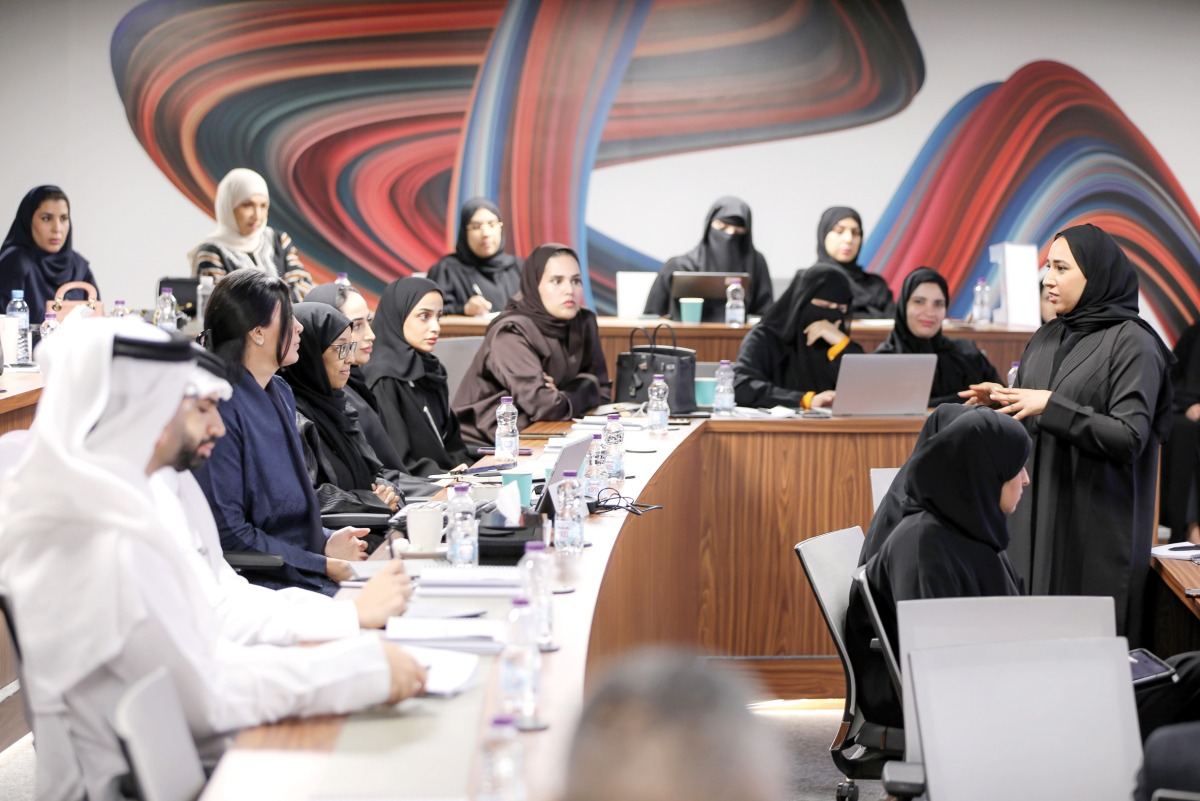The Ministry of Communications and Information Technology (MCIT) recently organized a workshop at the Digital Center of Excellence Msheireb in Doha to discuss the outcomes of the Digital Government Model and assess the digital transformation maturity of government entities. The workshop aimed to review performance development mechanisms, evaluate the index’s effectiveness, and discuss key findings from reports issued by entities in the first phase. Representatives from various government ministries and bureaus participated in the workshop to enhance government capabilities, promote a comprehensive government approach, and support the implementation of the Digital Agenda 2030. The Digital Government Model comprises six pillars: leadership and governance, technology and innovation, e-services, data, sustainable development goals, and cybersecurity.
The MCIT developed the Digital Transformation Maturity Index Model for Government Entities to help government agencies identify their maturity levels regarding key organizational and technological aspects and improve their digital transformation. The model acts as a planning and decision-support tool to enrich decision-making in areas requiring investment to increase government entities’ capacity for leadership and innovation in digital government. It enables government entities to identify necessary actions to enhance the quality of their digital operations, support digital services and programs, and achieve goals related to service innovation and government transformation. The model is a valuable tool for officials in government entities in Qatar to assist them in digital transformation, develop digital government strategies aligned with Qatar’s Digital Agenda 2030, and enhance collaboration with other government entities and the community.
Director of the Digital Transformation Excellence Department at MCIT, Farha Al Kuwari, emphasized the ministry’s efforts to accelerate digital transformation in government institutions by developing an advanced and sustainable technological infrastructure. The workshop is designed to actively support government entities in their digital journey, enhancing their efficiency and competitiveness through innovative digital strategies that promote inclusivity and sustainable prosperity in the digital age. The workshop aligns with the 2030 digital agenda and Qatar National Vision 2030, ensuring that government entities in Qatar are well-equipped to meet the challenges and opportunities of the digital era.
The workshop aimed to assess the digital transformation maturity of government entities in Qatar and discuss key findings from reports issued by entities in the first phase of the Digital Government Model implementation. The model comprises six pillars that focus on leadership and governance, technology and innovation, e-services, data, sustainable development goals, and cybersecurity. By using this model, government entities can identify gaps, benchmark their digital transformation maturity, and enhance collaboration with other entities and the community. This workshop is part of MCIT’s efforts to accelerate digital transformation in government institutions and support the implementation of the Digital Agenda 2030 and Qatar National Vision 2030.
The workshop brought together representatives from various government ministries and bureaus to discuss the outcomes of the Digital Government Model and assess the digital transformation maturity of government entities. The model is designed to help government agencies identify their maturity levels regarding key organizational and technological aspects, improve digital operations, and achieve goals related to service innovation and government transformation. By developing digital government strategies aligned with Qatar’s Digital Agenda 2030, government entities in Qatar can enhance their efficiency and competitiveness through innovative digital strategies that promote inclusivity and sustainable prosperity in the digital age. The workshop aligns with the ministry’s efforts to accelerate digital transformation in government institutions and support the implementation of the 2030 digital agenda and Qatar National Vision 2030.





















